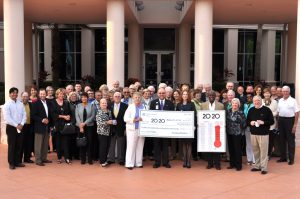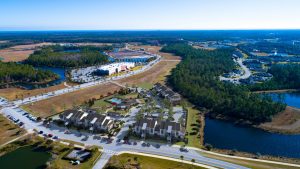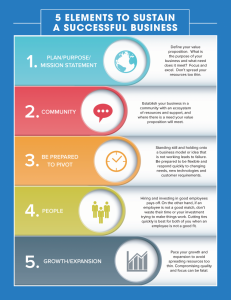According to the 1985 Tears for Fears hit, everybody wants to rule the world. But in the business world, everybody wants to be an entrepreneur. And with good reason.
“The sex appeal of entrepreneurship remains and grows,” said Ky Ekinci, co-founder of business accelerator Office Divvy in Palm Coast and organizer of the Entrepreneur Night events. “It’s still a buzzword, people are hoping at one point in their lives to have some kind of business going, and that becomes their passion or even becomes a greater business.”
While the idea of following in the footsteps of famous entrepreneurs such as Elon Musk, Jeff Bezos and Bill Gates continues to have broad appeal, the truth is entrepreneurship in the United States has been in decline, according to a report from the Congressional Budget Office.
The agency outlined three main reasons for the decline, financial issues, demographic changes in the labor force and regulatory barriers. For Ekinci, there is another crucial reason: inconsistent community support.
“To a degree, I think a community can approach this culturally at least like a venture capitalist approaches investing in startups,” he said. “What has been the challenge is local, where everything is government reliant.”
Ekinci said creating an entrepreneurial ecosystem is a key ingredient in providing fertile ground for those residents who want to take the necessary risks to bring their ideas to the market. And that includes being willing to fail.
“One thing we know, government entities have no tolerance for failure,” he said. “In that culture, failure is something to be hidden, but in entrepreneurship, 80 percent of the time, it will be a failure, and without embracing the failure, you can’t have success.”
The willingness to fail is the foundation of entrepreneurship and is part and parcel of creating the kind of disruption entrepreneurs thrive on.
“You need a combination of a foundation of business savvy, not necessarily an education but something and also being a fool and being hungry,” Ekinci said. Those are the ingredients for entrepreneurial success, along with a bit of luck.
Creating a broader public/private entrepreneurial ecosystem is something Joe Roy, president and CEO of the Coastal Entrepreneurship and Innovation Center thinks about every day.
“Our ecosystem should include county and city government, nonprofit and for-profit businesses, and community organizations,” Roy said. “In my view, it should be part of a broader economic strategy developed by ecosystem participants and implemented throughout Flagler County.”
Part of that entrepreneurial culture is a support network of like-minded individuals who share experiences and insights and understand that failure is always an option for entrepreneurs.
“It is often said that people resist change,” Roy said. “I don’t subscribe to that conclusion. If people resist change, it’s not the change they resist; it’s the fear of failure.”
But for entrepreneurs, Roy said, failure is a learning tool. And acceptance of the possibility – even likelihood – of failure is a necessary component of a vibrant entrepreneurial community.
“An entrepreneur network is essential to economic development in Flagler County and our future growth,” he said.
For Ekinci, that kind of network is a vital piece of the economic puzzle.
“Without dispute, we know that startups are the ones that fuel jobs and the economy,” he said. “Economically, it’s a huge value to any community.”
Earlier this year, the region received an entrepreneurial boost when Daytona State College was awarded an from the Florida Department of Education. In addition to offering students the , the grant will enable the college to partner with local development organizations and businesses in Flagler and Volusia counties.
In a media release announcing the grant award, Sherryl Weems, associate vice president of the Mary Karl College of Workforce & Continuing Education, highlighted the importance of entrepreneurial thinking.
“Entrepreneurial mindset training is an essential life skill that will empower the employability of our students” she said in the release. “The training reinforces our commitment to our business community to fully embrace the value of providing intentional approaches that ensure our students are competitive and add value in the workplace.”
According to Joe Wright, the Daytona State program comes at an opportune time for entrepreneurs in the region.
“I have a pile of small businesses in town,” Wright said, adding the community is ripe with promise for the next generation of entrepreneurs.
“I think that we’re young enough that we still have a lot of opportunities,” he said of Palm Coast and Flagler County.
Wright said a more cooperative attitude from local governments has laid the groundwork for entrepreneurial activity.
“In that last 18 months to two years, there has been a change in mentality in the city and county,” he said. “Right now, they are picture perfect for somebody who wants to come in a start a small business. This is the right atmosphere.”










